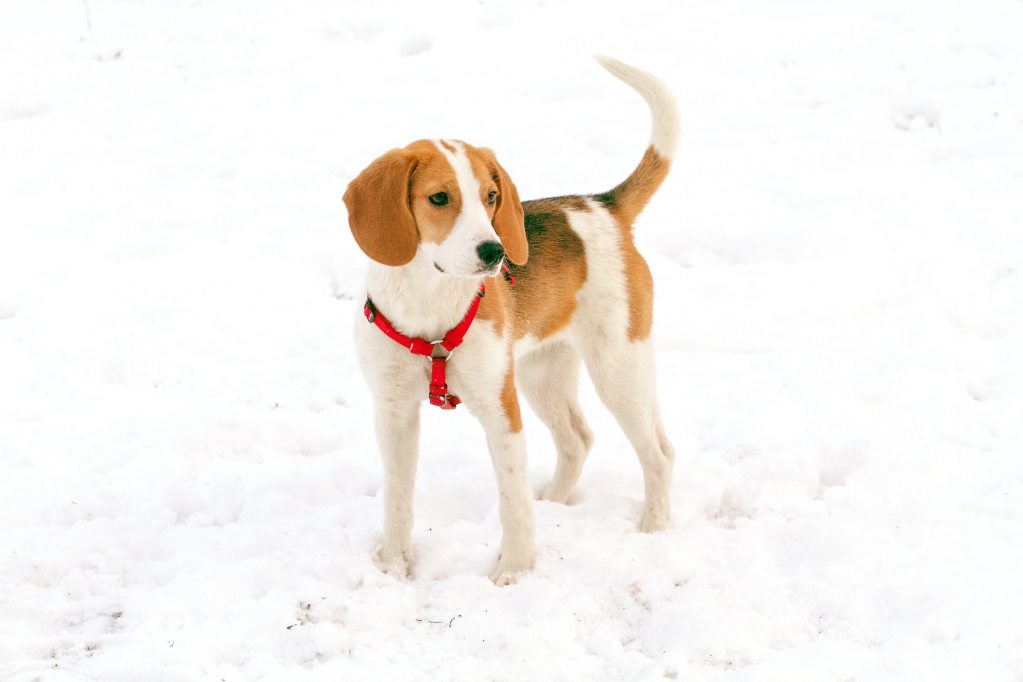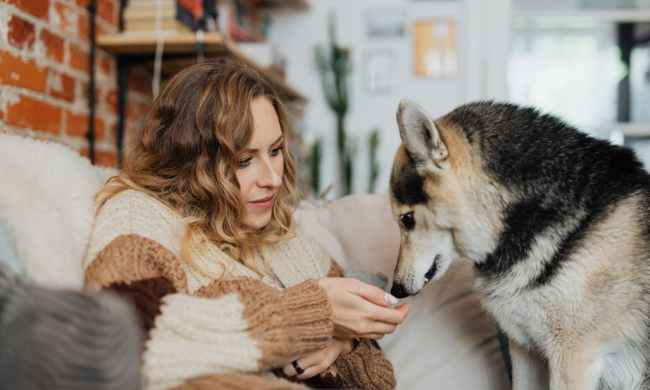Many pet parents are familiar with the dangers of heat on a dog’s paws, but did you know the cold poses just as much of a threat? It’s true — prolonged exposure to ice, snow, or even chilly sidewalks can lead to a host of unwanted consequences for your furry friend. Luckily, there’s a lot you can do to protect a dog in cold weather, starting from the paws up.
The dangers of cold conditions for your dog’s paws
A lot of owners think ahead to protect dogs in hot weather, so why shouldn’t you do the same when it’s chilly outside? The cold might not seem as dangerous at first glance, but dog trainer Michelle Lehr, CCMT, urges dog owners to look closely for danger.
“It’s important to understand that the paws of a dog are particularly vulnerable to the cold,” she explained. “This is because they are constantly in contact with the ground and are exposed to the elements. In addition, dogs tend to lose a significant amount of heat through their paws, which means they are more susceptible to frostbite and other cold-related injuries.”
According to Lehr, signs of frostbite include:
- Redness
- Swelling
- Numbness
- In severe cases, tissue death
She also warns owners to keep an eye out for any ice balls that might form on the fur of the paws — or even between the toes! As well as being super uncomfortable, these ice balls can also increase the likelihood of frostbite and other complications.
Dr. Lindsay Butzer, DVM, is passionate about the hidden dangers of “toxic chemicals such as salts and deicer ingredients that can be left on your pets’ paws. I always recommend using snow boots on your pups if you’re anticipating going for long walks on cold surfaces or in areas with roads where there are toxic chemicals used to melt the snow.” Plus — those paws will be protected from the cold!

How to protect your dog’s paws in the winter
As Butzer recommended, dog paw booties can be one solution for a number of cold-weather concerns. If your dog isn’t a fan of wearing anything, though, you can opt for alternatives to walking outdoors in the winter. Lehr also believes in limiting outdoor time during freezing temperatures, however, that doesn’t mean you have to skip every walk. Paw balms are another helpful type of dog paw protection for pups that can’t resist a romp in the snow.
Aaron Argueta is the co-founder of Bailey’s CBD for pets, and he loves using paw balm for chilly toe beans. He suggested “using Bailey’s hemp-infused paw and nose balm to help restore moisture, reduce inflammation, and keep your dog’s paws and nose protected for longevity. It easily absorbs into your pet’s paws, nose, and skin and contains ingestible-safe, plant-based ingredients.” That sounds easy enough to try, right?
There are many ways to keep your pup’s paws safe during the cold winter months — though it’s up to you to find the solution that fits best into your life. Good luck!




